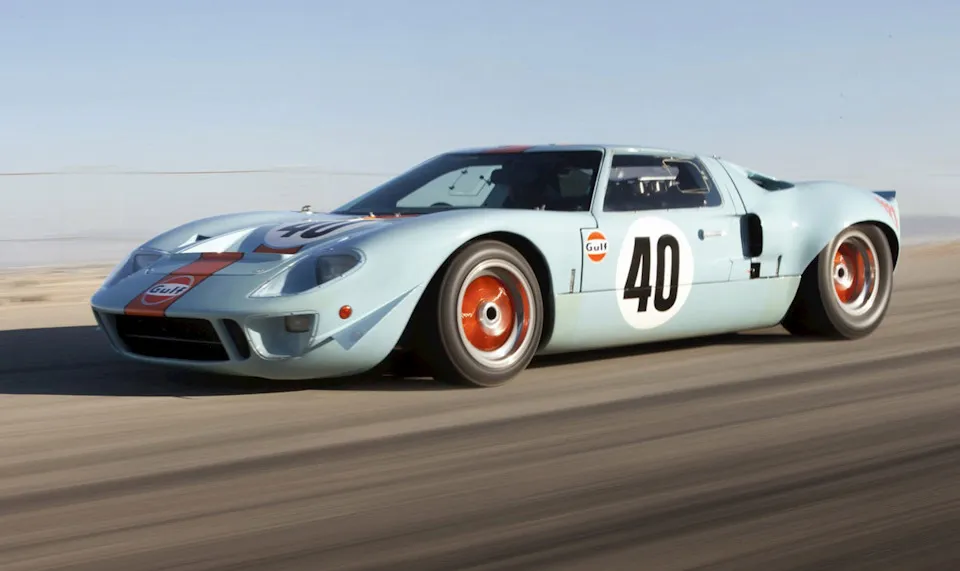
Anger is a negatively colored affect directed against the perceived injustice, and accompanied by a desire to eliminate it. This is the meaning of this concept in Wikipedia. Friends, today I want to suggest to you to understand, whether always anger is harmful and harmful? Of course, we will consider a concrete example from the history of the automotive industry, and I will try to prove to you that sometimes the benefits of this emotional phenomenon are more than destructive harm, despite the fact that in Christianity and many other religions anger is a mortal sin, along with gluttony and Laziness.

In the modern world, top managers of automotive companies make the decision to launch a new model in a very balanced series, taking into account every factor that can affect subsequent sales and the planned result. Manufacturers went to this long ago: even Henry Ford, starting the release of Tinsel Lizzie, was thinking primarily about sales and profits.
However, history knows the case when emotions prevailed. Yes, what emotions! It was not love, excitement and euphoria, thanks to which usually something is created that is really worthwhile and truly beautiful. The driving force in our history was revenge, anger and resentment, and the result was the most powerful and beautiful super-car of its time.
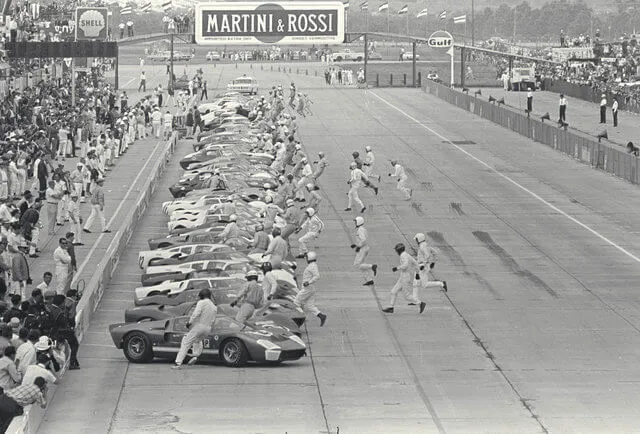
In the early 1960s, Henry Ford II began to look at the European series of races on which his cars were not represented. In particular, he was interested in the most prestigious 24-hour endurance race in the French Le Mans. At that time, Ford did not have a car capable of resisting in the competition famous Europeans, but from Enzo Ferrari unexpectedly received an offer to buy his stables. Stallions from his Scuderia stably came to the podium, and the purchase of Ferrari by Ford Concern most elegantly solved the task.
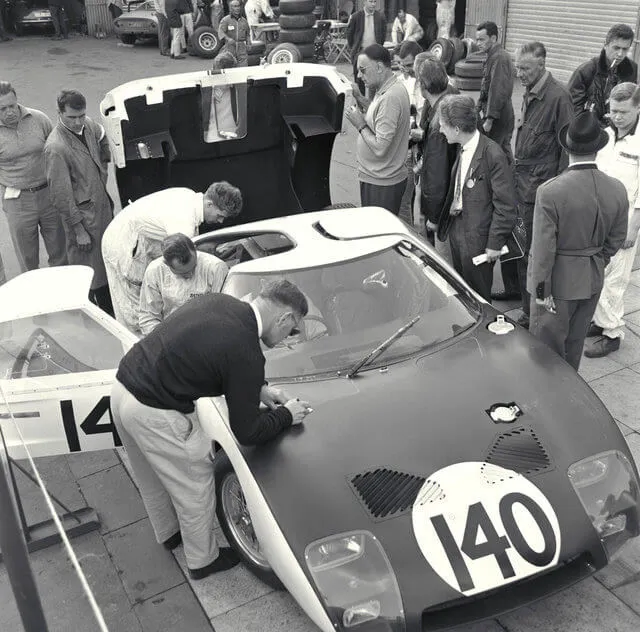
And in 1963 negotiations began, external audit, an estimation of Ferrari, and also other vanity, previous to purchase for which Henry Ford has laid out some millions dollars. Terms of sale looked very tempting: Ford was laying out a tidy sum, but at the same time leaving Enzo Ferrari at the helm of the company and allowing him to exercise actual control. It would seem that everything is just fine, but suddenly there was a stumbling block - according to the contract, Enzo lost the right to lead the racing division. For a man who created a Ferrari brand specifically for racing, losing control of the company's racing strategy was beyond his power, and Enzo unilaterally broke off the talks.
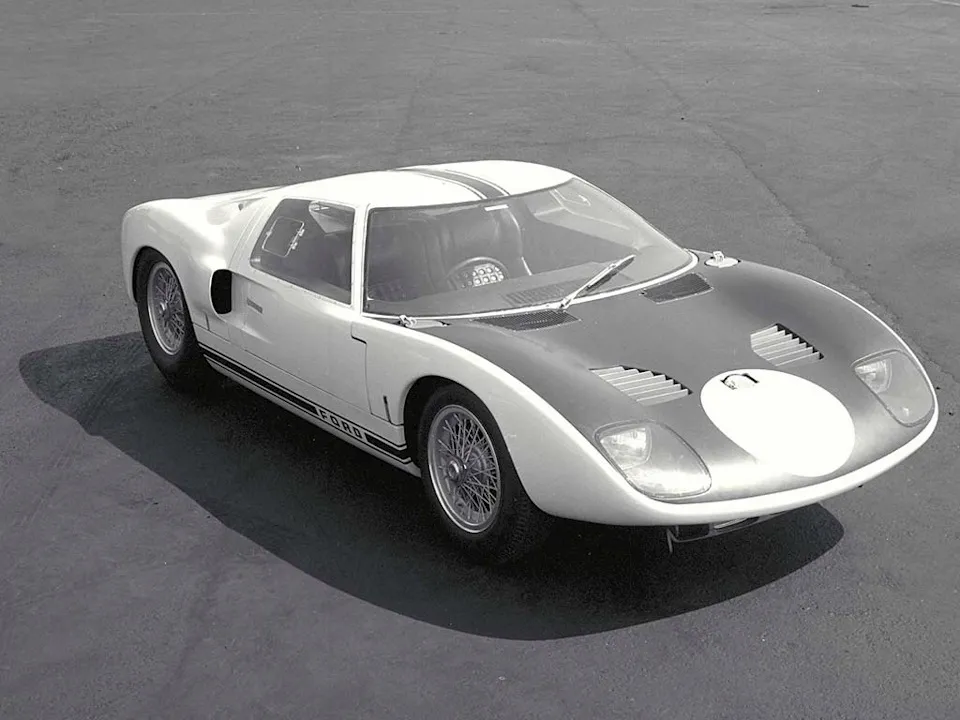
Rubbing his hands in anticipation of a good deal, Henry Ford II was completely unprepared for such a turn. He was just furious and set the company's top managers a task: to beat Ferrari at 24 hours of Le Mans by all means.

Experience in the construction of the concept for such races in no one in Ford was not, so immediately began to consider options for cooperation with European companies that specialize in the production of sports prototypes and racing cars. Negotiations with Cooper Car Company ended quite quickly, the company built good cars for Formula 1, but they were not ready to do bodywork. Lotus Cars, with whom Ford already worked in the American series Indy 500, tactfully refused, probably because of the actual inability to pull two serious projects. Then they turned to the English company Lola Cars, which bought from Ford V8 engines for installation in their car Lola Mk6. The management of Lola privately agreed to support such an ambitious project. Next was the former head of the Aston Martin racing team and the only Ford mechanic who had experience in building mid-engined cars.
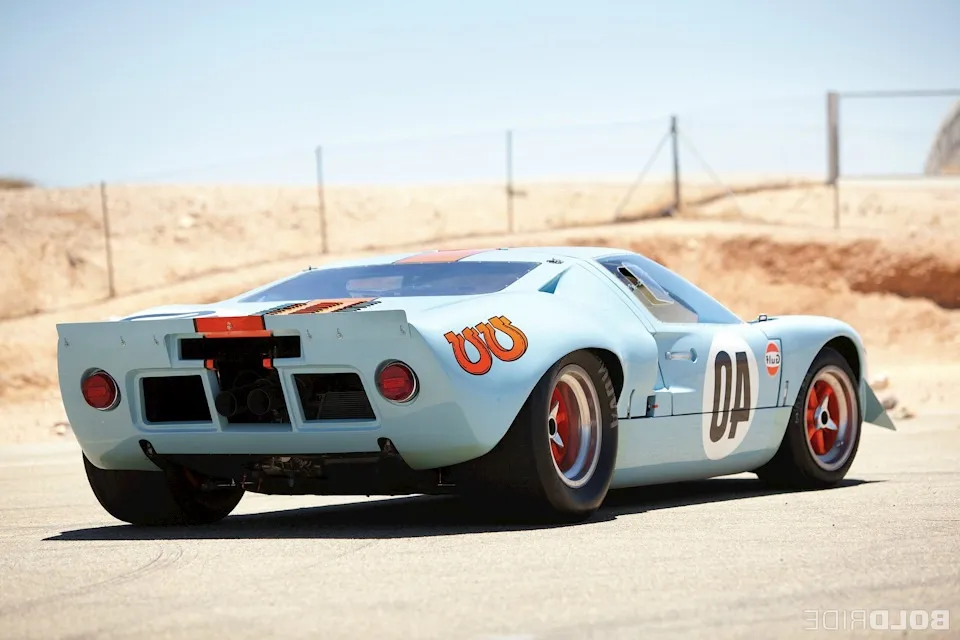
In August 1963 at the Lola factory the work began to boil, and already on April 1, 1964 the public was shown a ready-made Ford GT40. The abbreviation GT is the class of Gran Turismo, 40 is the height of the car in inches, that is, just over a meter. As a power plant used 4.2-liter Fairlane, issuing 350 hp.
Thus, the car was ready for the start of the season, and in May its first race took place. In fact, the season of 64th showed that the car came out really good, quite competitive, but crude. Almost every departure was accompanied by breakdowns. For the management of Ford, the solution to the problem lay on the surface: only one person could reach the car - Carol Shelby.

And how does the brilliant Shelby car bring to mind? All elementary: to facilitate, strengthen, add power. Taking the basis of the essence of the European GT40, Shelby did not ignore any details and for another year prepared for the race the second generation of super-car, testing their decisions on the already participating in the race cars. Thus, in the year 65 the first victory was won, but this was not enough.
In the next season, Ford released on the track its unbridled, uncompromising and ruthless beast. In February of the 66th the updated GT40 took the entire podium at the 24-hour race in Daytona, in March all three prizes at the 12-hour race in Sebring, and in June the cherry on the cake - 24 hours of Le Mans all podium for the GT40. Revenge was terrible and beautiful. For four years, no one could compete with the blue oval. Ford podiums selected eminent competitors, as a trifle in junior high school students, incidentally setting records and raising the technology to a new level.
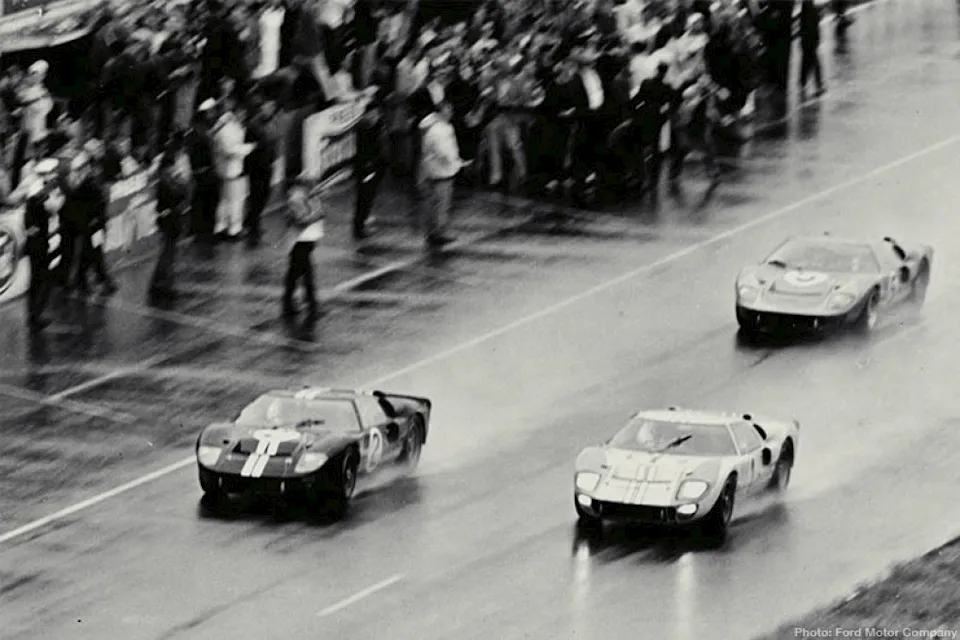
The hegemony of the GT40 lasted until the year 70, when a new regulation was introduced limiting the volume of the engine to three liters, otherwise it became a competition of several GT40, which had no competitors.
It was a glorious time, gave us amazing cars, great racers, amazing stories and new traditions. In 2005, for example, the light saw a new Ford GT, a carrier of racing ancestor genes, adapted to everyday driving, to the creation of which Carroll Shelby once again put his hand, thanks to which GT again set the heat to competitors. But this is a completely different story.